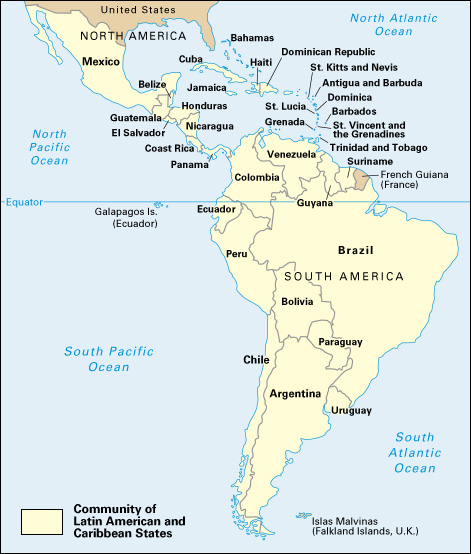Community of Latin American and Caribbean States (CELAC) is an international organization of countries in North and South America. The group is dedicated to cultural, economic, social, and political integration among its members. CELAC includes every independent nation in the Americas other than Canada and the United States. In Spanish, the group’s name is Comunidad de Estados Latinoamericanos y Caribeños.

CELAC has no permanent administrative or governing institutions. It functions primarily through meetings of heads of state and government, foreign affairs ministers, and national coordinators. The countries of CELAC take turns heading the organization’s presidency. A trio made up of the current president and those serving immediately before and after helps lead the organization.
Latin American and Caribbean leaders developed the idea of CELAC at a summit in Cancún, Mexico, in February 2010. They formally established the group by signing the Caracas Declaration in Venezuela on Dec. 3, 2011. CELAC’s first resolutions expressed support for Argentina’s claim on the Islas Malvinas (Falkland Islands) and opposition to the U.S. embargo (trade restriction) on Cuba. CELAC also voiced strong disapproval of violations of migrants’ human rights.
CELAC aims to strengthen Latin America’s political independence and diplomatic power. It strives to diminish the United States’ long-standing influence over Latin American affairs. Some of CELAC’s founders hoped for the organization to provide an alternative to the Organization of American States (OAS) for dealing with matters in the Americas. The OAS includes both Canada and the United States.
See also Organization of American States (OAS) .
